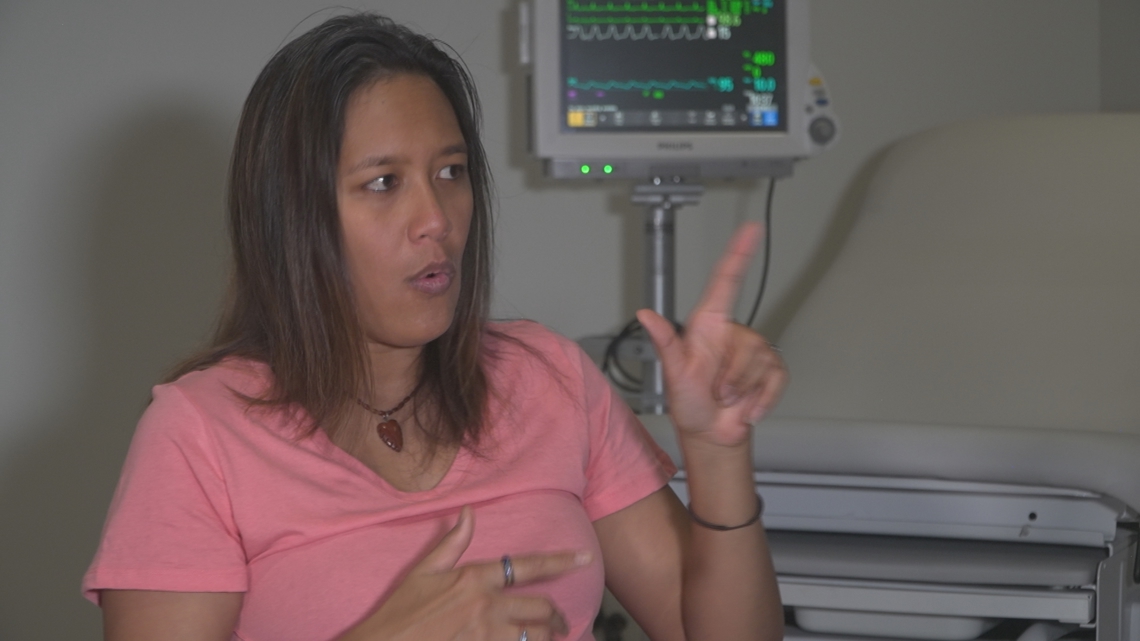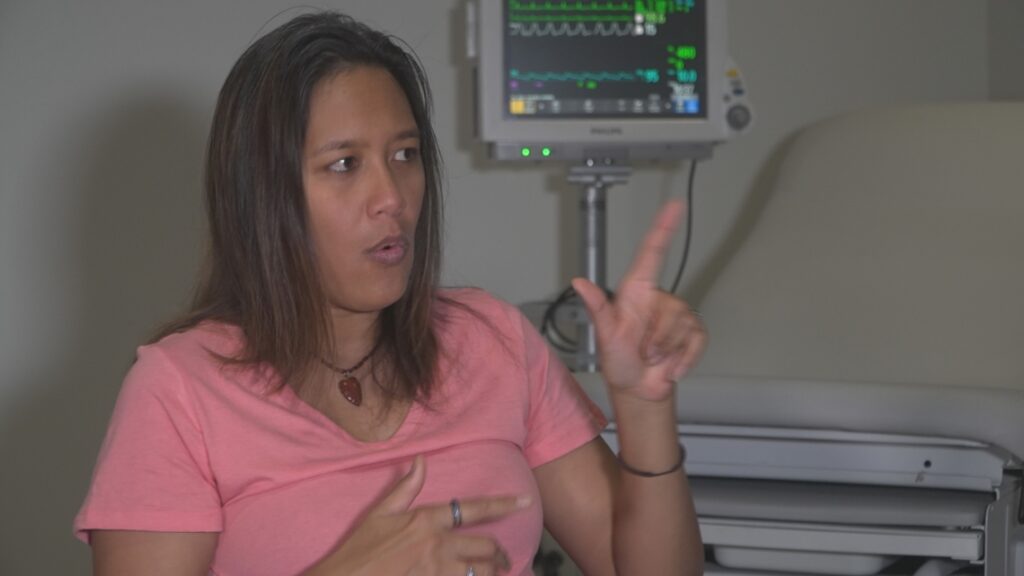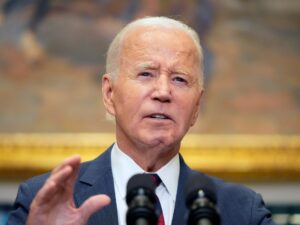
UCHealth is expanding its team to have six American Sign Language interpreters.
AURORA, Colo. — UCHealth is expanding its team of American Sign Language interpreters, becoming the first major hospital system in the Rocky Mountain region to do so.
UCHealth now has three ASL interpreters in the Denver metro region, with two more in its southern region and one more in the northern region.
The move comes amidst a nationwide shortage for ASL interpreters, which often leaves deaf patients like Angela Lavin in a difficult situation.
“High and dry, is how I feel,” she said. “Hearing people should be able to gather information, and deaf people should be able to gather that information exactly the same way. I don’t like missing out on information.”
Hospitals regularly employ interpreters for common languages like Spanish and Chinese but use online and phone services for more uncommon languages. Lavin said those services are difficult for sign language because of the necessity to see what’s being said.
“It’s happened to me before that I’m at a doctor’s office and they move in the video interpreter, and it works for a few minutes, and then it gets filtered or it freezes,” she said. “So, then we wind up writing notes, and that eats up so much time.”
She praised UCHealth’s decision and said it’s a step forward for the deaf and hard of hearing community.
“It’s important for everyone to get connection between deaf and hearing people and to be able to feel that confidence that you can tell people what you need and how you’re feeling,” she said.
Lariisa McClung is a UCHealth interpreter who worked with Lavin following a serious car crash. She’s now translating for Lavin as she prepares for the birth of her first child.
“That’s why I do this,” McClung said. “You want to have meaning to your work, so as an interpreter, to know that what you’re doing has meaning and makes a difference in a person’s life is so key and makes the job so satisfying.”
Michael Clarkson, UCHealth’s language services manager, said the shortage of ASL interpreters is a serious problem in hospital settings. He said they worked quickly to make sure they could hire enough staff to fill the need.
“It really is every day that we see this type of need,” he said. “We really are a leader and a pioneer in this space.”
UCHealth recommends reaching out ahead of time if you need an ASL interpreter to ensure they can meet that need at your appointment.










More Stories
Colorado hot springs resort plans new hotel in 136-year-old building
Study: Wildfire smoke boosts risk of mental health issues in children
Health officials remind consumers to be mindful before drinking apple cider